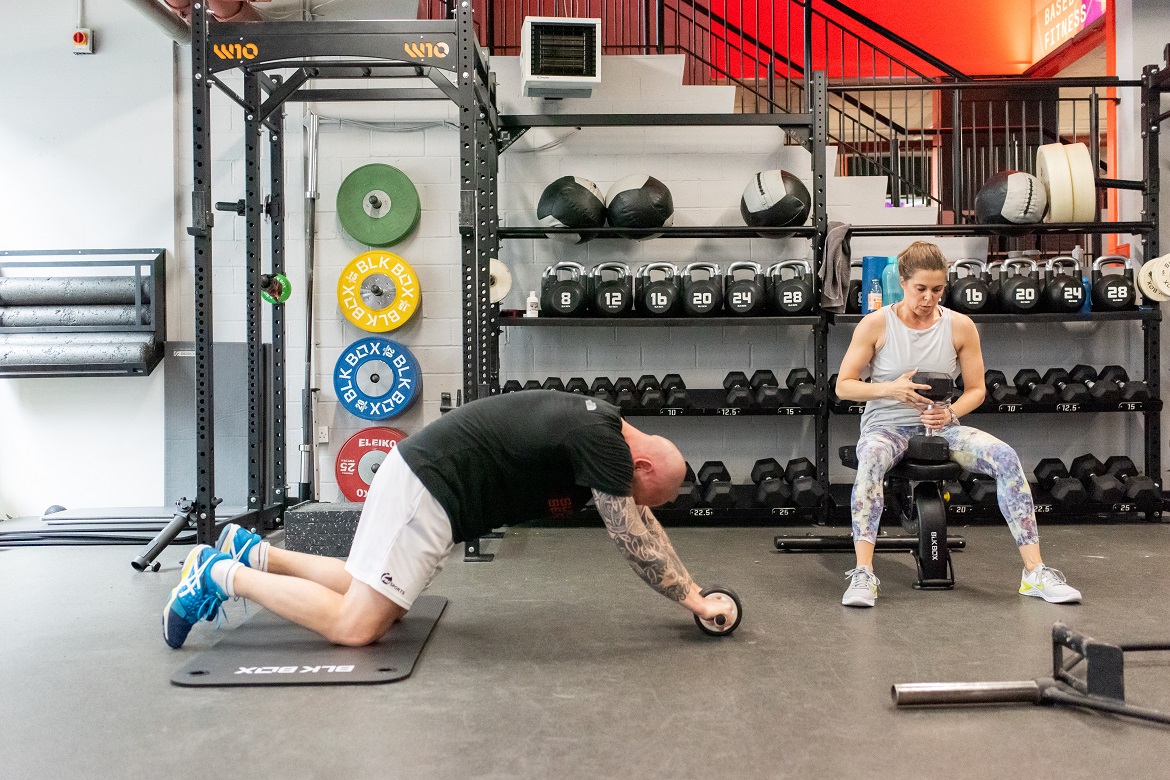
Categories
Exercising Through Cancer – The ‘Wonder Drug’.
Until relatively recently, cancer was either a death sentence or something from which you were cured. Advances in medical technology mean many of the 2 million plus people living with cancer do so as a long-term condition. The reality is their quality of life is not where it could be.
During, and especially post, treatment people are surprised to feel so fatigued, depressed with reduced endurance and muscle strength.
You don’t suddenly get the all clear and everything is back to normal. Living with the condition long-term is tough. Many people don’t realise that heart problems and osteoporosis (brittle bones) are a longer-term consequence of cancer treatments.
It is not all doom and gloom. There is a light on the horizon in the form of exercise.
Exercising with Cancer
Many living with cancer simply don’t realise that by moving more they will be alleviating and even preventing the occurrence of some of these issues. Not only that, reducing the likelihood (in some instances) of re-occurrence of their cancer. In fact, this news is still filtering through to health care professionals so it’s no wonder the general population isn’t aware yet.
Every week you see the latest supplement/drink/special potion that’s supposed to reduce cancer risk or even cure it. The one thing that links all these supposed ‘cures’ is a lack of hard evidence.
Sure, someone may have noticed a difference in a cell when subjected to the powerful healing properties of ‘substance X’. It is a big leap to suggest it will work in a large human population group. The reality is, many or all of these things simply do not work.
There is, however, increasing evidence showing that physical activity has advantages during every stage of the cancer care pathway.
The Evidence
A few years ago, MacMillan Cancer Support commissioned a report on the benefits of exercise. They found that 70% of those who’d received treatment for cancer were still suffering physical side effects between 1 and 10 years post-treatment. These physical side effects include weight gain, nerve damage, swelling in the limbs (particularly arms), blood clots, lymphoedema and night sweats.
There is now evidence demonstrating that exercise and physical activity helps with the management and reduction of these symptoms caused either by cancer itself or its treatment.
It seems counter-intuitive to say to somebody struggling with fatigue that exercise will give them more energy. However, that is exactly what happens to those who take part in exercise as part of their treatment and recovery.
Longer-term, physical activity and exercise help reduce the impact of side effects such as depression and anxiety. Not only that, pysical activity aid in a better quality of life and increased mobility. Add to this the advantages of regaining strength and endurance. Lastly, it can also help to manage your weight. With all these benefits it seems odd that more people aren’t being advised to move a little more each day to help them.
Exercise-The ‘Wonder Drug’
According to research exercising for the recommended period each week reduces a person’s risk of dying from breast or prostate cancer by between 30 and 40% when compared to those doing less than 1 hour per week of physical activity. The recommended amount of exercise, in this case, is 150 mins of moderate intensity exercise. For bowel cancer, 6 hours will reduce the risk of dying by up to 50% when compared to those doing less than 1 hour of physical activity a week.
If a drug could claim to reduce the risk of dying by 30-50% the term ‘Wonder Drug’ would be coined as a result. In fact, there are drugs with less efficacy than this that lay claim to being ‘Wonder Drugs’ while the free and easily accessible exercise treatment struggles to gain traction in healthcare.
How to exercise through Cancer
When it comes to exercising through cancer you need a very individual approach. Cancer is not one disease. It is a collection of over 200 diseases each with their own set of symptoms and severity levels. Some people need operations to remove tumours while others, with the same type of cancer, do not.
In the first instance, when it comes to exercise the key is to move. Tailor it around your fitness level. How you feel and what restrictions you have should be considered. The goal is to progress and there should be no fear of slightly more intense exercise. The research shows this can be more beneficial than light intensity work.
At w10 all our programmes are individually tailored to support your needs. During our 30 day trial, you’ll receive a body composition analysis and full movement screening to help us define your goals and plan your individual programme. Exercises will be selected that are appropriate to you, whether you’ve undergone surgery/treatment or not.
We only ever ask clients to push as hard as they feel they can ‘on a given day’. We recognise that not everyone feels 100%, every day, more so for those living with cancer.
Conclusion
Historically the advice and natural inclination were to rest while undergoing treatment/recovery from cancer. Now it’s clear that the benefits of undertaking physical activity could be huge.
Resistance based training helps reduce sarcopenia (muscle loss) and also helps regain strength losses. Activities that increase the heart rate (including some resistance work and cardiovascular work) help improve energy levels and fight fatigue.
All forms of exercise also assist in fighting against anxiety and depression, which is an underestimated consequence of cancer. There are now big movements being made in cancer care prescribing exercise as part of treatment plans and it would appear, from the evidence so far, this is having an undeniably positive impact.
So, while you may not feel like it initially, take the first tentative steps and begin some physical activity. The positive effects will be immediate and, seriously, could help improve treatment outcomes and long term health.
Our mission is to help people live their best lives outside of the gym by providing the best possible standards of personal training in London.
Related Articles
- Exercising with Arthritis
- Your Health Bank Account
- Exercising When Sick – When It’s Safe to Workout?
- Senior Fitness – It’s Never Too Late to Start
- Improve Your Mental Health


